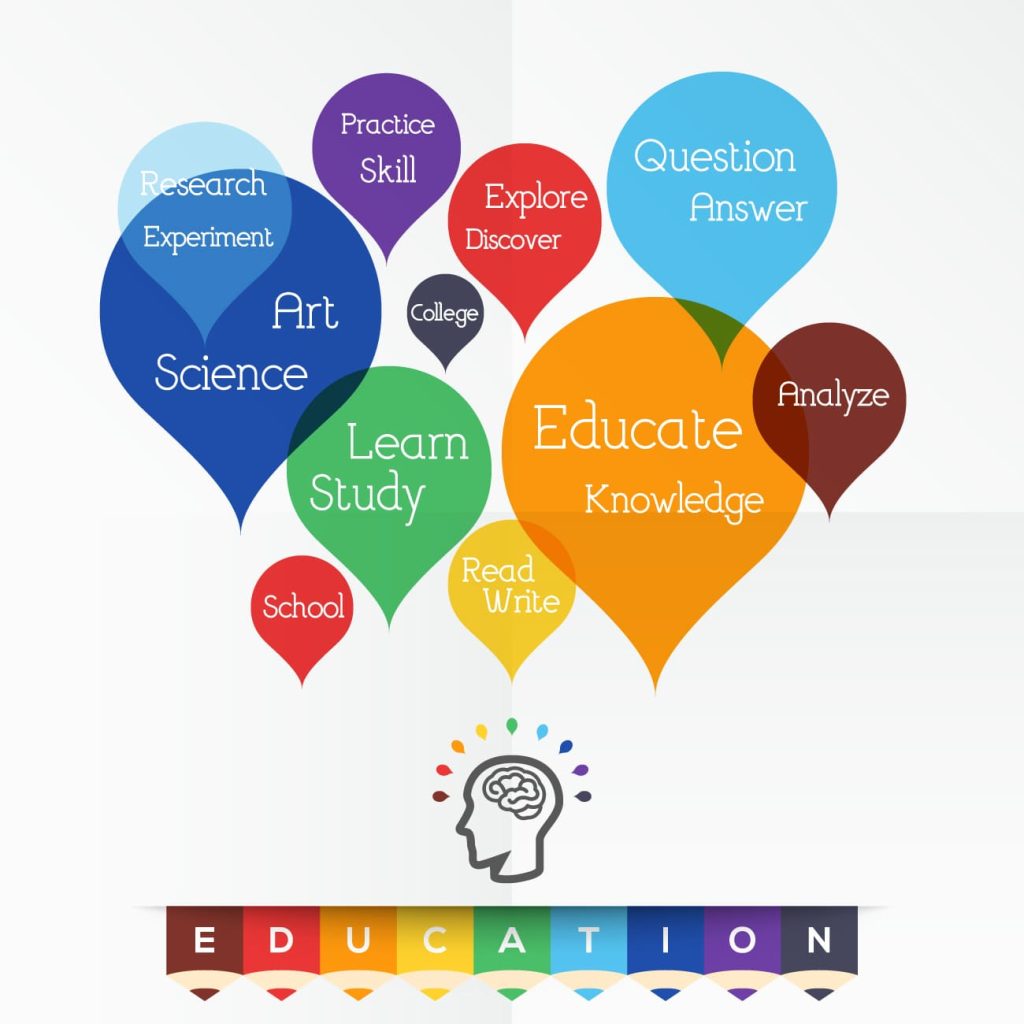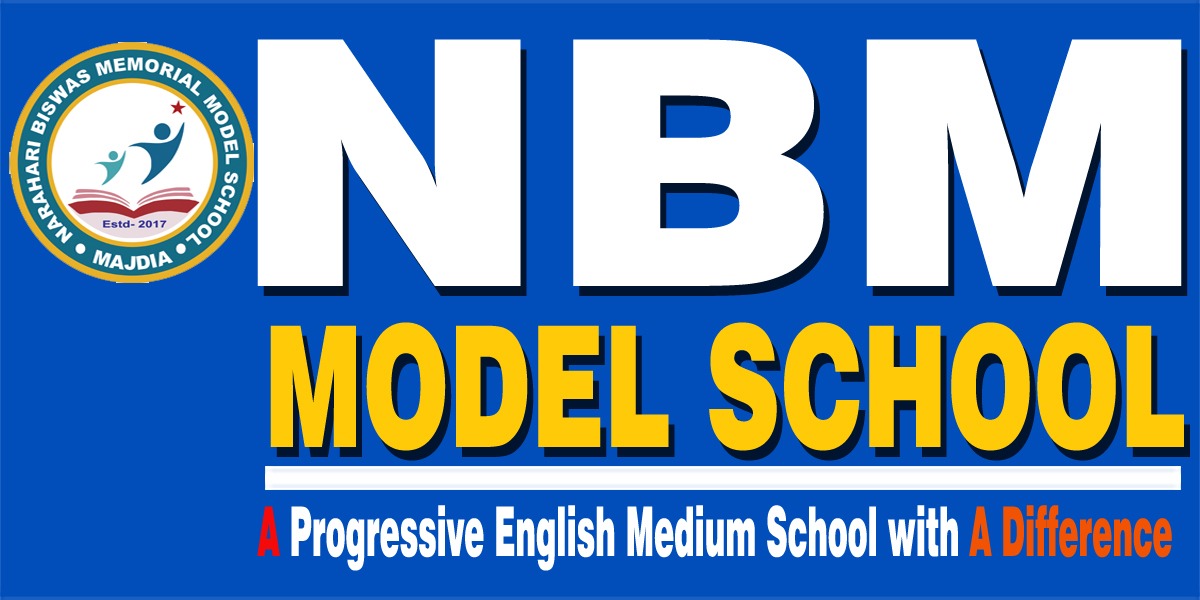
“You read, you forget; You see, you remember ; You experiment, you understand” is the basic methodology adopted by NBM MODEL SCHOOL for teaching.
Classroom is equipped with digital smart class Equipment for audio-visual teaching. Through innovative and experimental teaching methods, we make the learning process extremely enjoyable.
Every child is born with unique gift of knowledge. Discovering knowledge is the province of every human being. We believe in leaving ideologies behind and seeing each student as an individual who has multiple ideas to share. We provide a structured situation in which students can discover how to articulate their ideas, both verbally and artistically.
We believe in the holistic development of the students to go ahead with the concept. We focus on both scholastic and co-scholastic methods of evaluation by giving equal emphasis on them.
SCHOLASTIC AREA– We impart education using modern technology including smart class, online classes, art integrated teaching approach, story-based teaching etc. The excellent board results are the testimony that academics is our prime concern.
CO-SCHOLASTIC AREA– The school organizes a large number of co-scholastic activities for the development of overall personality of students by imparting important life skills, literary, creative skills and inventiveness. Various inter and intra house activities are held in school like poetry writing, debates, Ted Talk, Storytelling, Nature Photography etc. to develop and nurture the hidden talents.
Explore
Foundational Stage (Age 3–8, Pre-school to Class II
Focus: Play-based, activity-based, discovery learning
- Learning through play, songs, stories, and activities.
- Use of TLMs like flashcards, puppets, toys, real objects.
- Encourage early numeracy and literacy through games, rhymes, and picture reading.
- Storytelling, role play, and picture-based activities for language development.
- Sensory activities, art & craft, sand play, building blocks for fine motor skills.
- Informal and continuous assessment (observations, anecdotes, activity sheets).
Explore
Preparatory Stage (Age 8–11, Classes III–V)
Focus: Transition from play to more formal learning
- Activity-based + interactive classroom discussions.
- Introduction of reading with comprehension, writing skills, basic maths operations.
- Group projects, puzzles, experiments, field trips to build curiosity.
- Integration of arts, music, dance, and storytelling into academics.
- Use of multimedia and visuals to explain abstract concepts.
- Encourage questioning, hands-on activities, and problem-solving.
Middle Stage (Age 11–14, Classes VI–VIII)
Focus: Subject-oriented, experiential learning
- Teaching through projects, experiments, debates, and group activities.
- Encourage inquiry-based learning where students explore, hypothesize, and experiment.
- Introduction of coding, computational thinking, vocational exposure.
- Promote cross-curricular linkages (e.g., maths in science, history in literature).
- Use of lab activities, models, role play, surveys, and data collection.
- Incorporate ICT tools, smart classrooms, virtual labs.
- Assessments include quizzes, project reports, presentations, peer and self-assessments.
Explore
Secondary Stage (Age 14–16, Classes IX–X)
Focus: Depth in subjects, critical thinking, career readiness
- Shift to multidisciplinary & competency-based pedagogy.
- Encourage research projects, internships, vocational training.
- Promote critical thinking, analysis, creativity, problem-solving.
- Flexible choice-based curriculum allowing students to explore their interests.
- Use of technology: simulations, online courses, virtual labs, flipped classrooms.
- Emphasis on holistic learning (arts, sports, ethics, life skills).
- Continuous assessments through portfolios, case studies, group discussions, viva-voce.
- Mentoring and career guidance integrated into teaching.
✅ In summary:
- Foundational → Play, activity, storytelling
- Preparatory → Interactive, curiosity-driven, group projects
- Middle → Experiential, inquiry-based, ICT-integrated
- Secondary → Multidisciplinary, competency-based, flexible & career-focused
